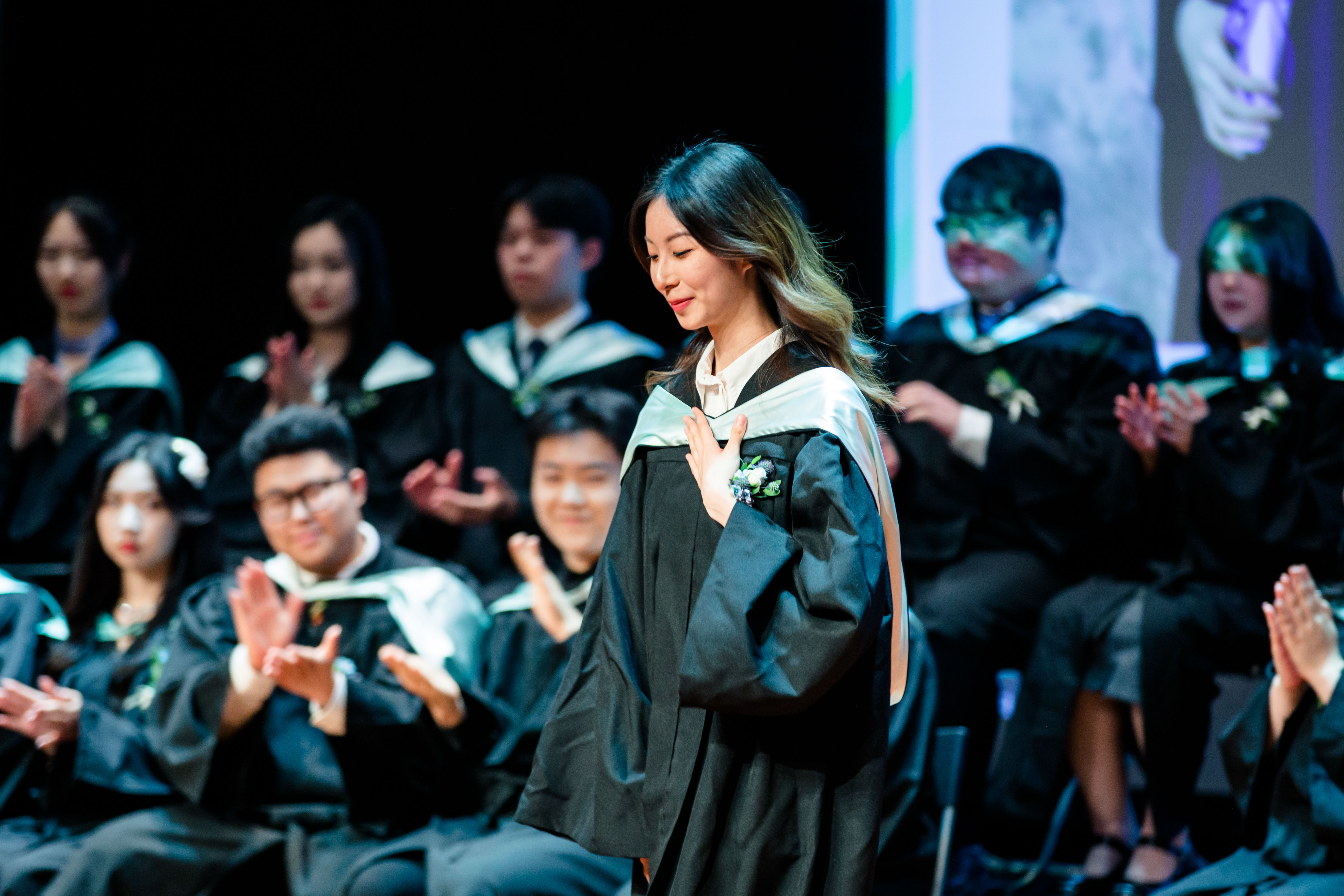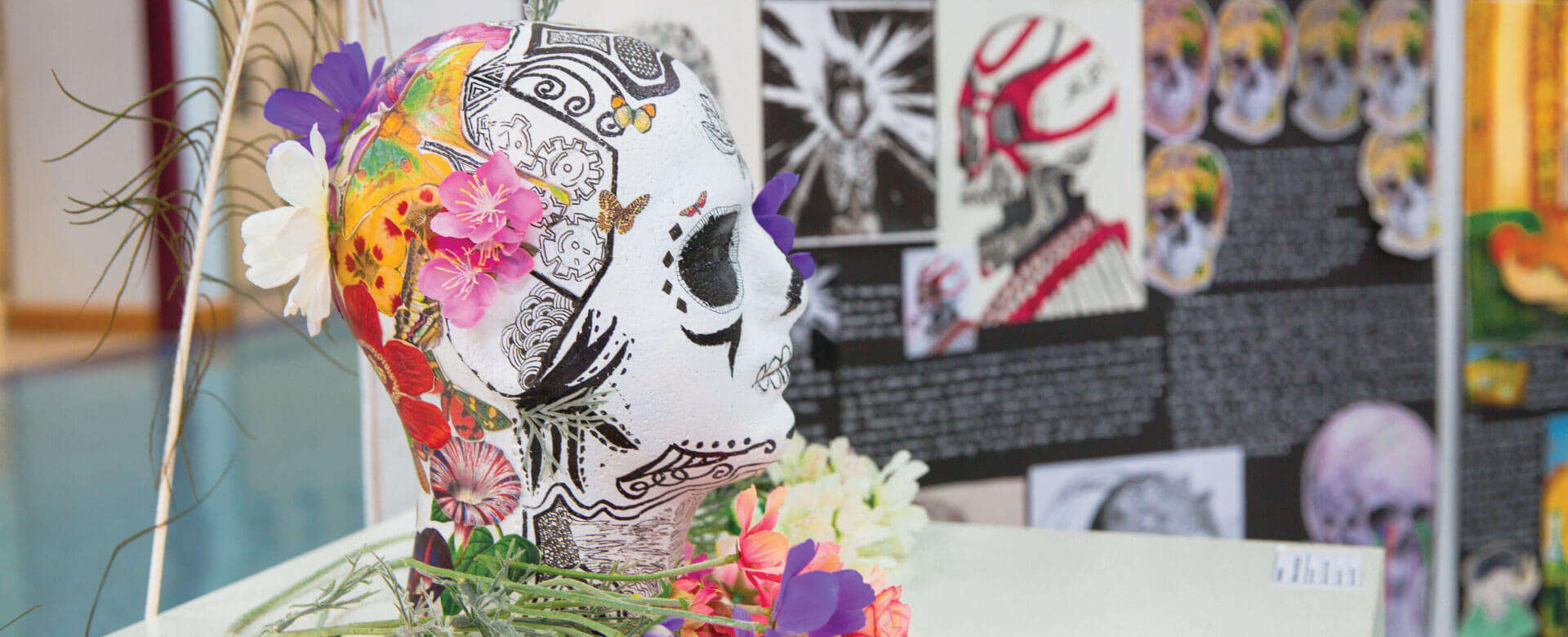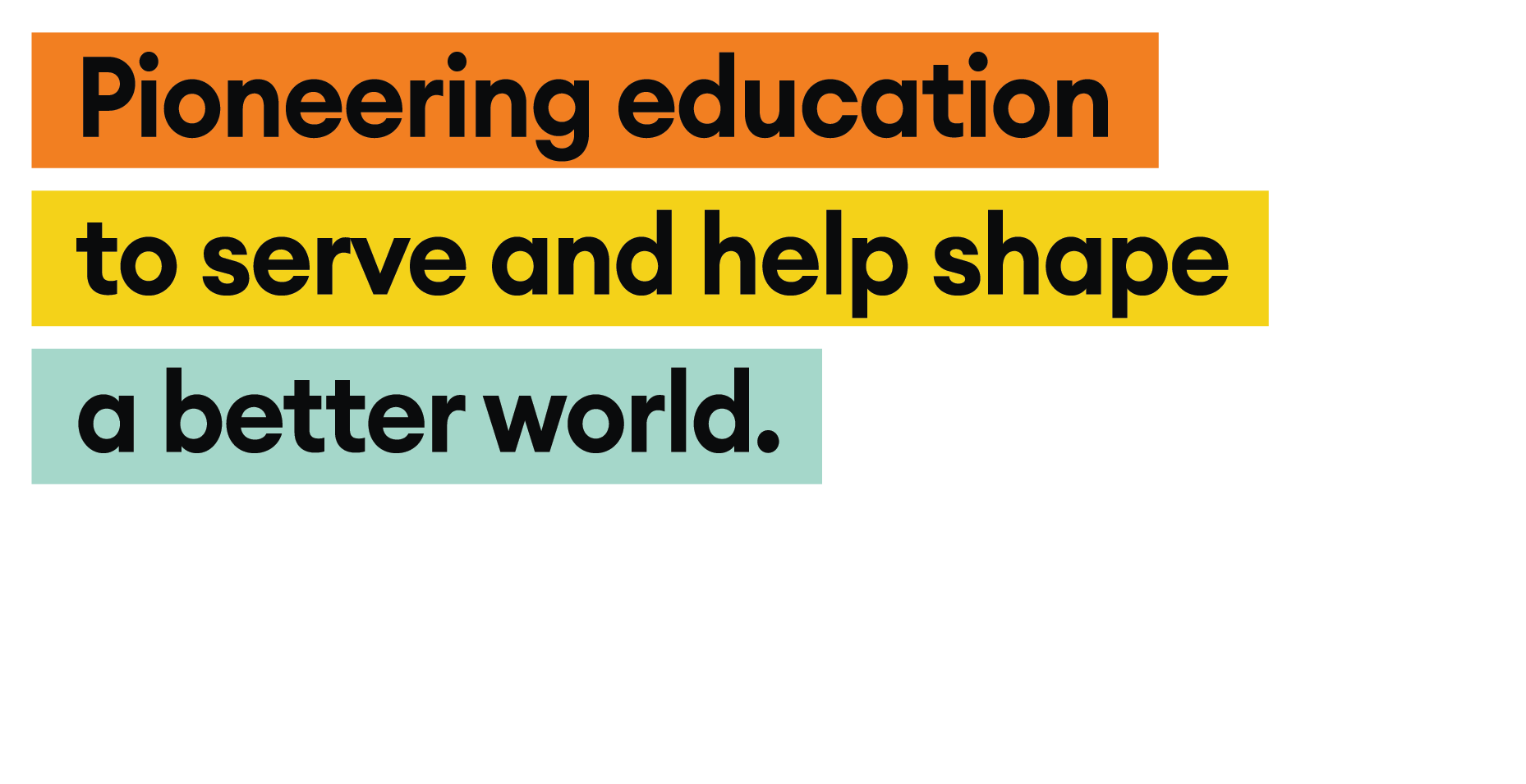Cultivating Soft Skills for the 21st Century
On November 20, 2021, the 11th Innovative Talent Forum & the 20th Anniversary of Desheng Education · DSI 10th Annual Education Summit, hosted by KingLead Beijing and organized by Desheng Education, were successfully held at Desheng School (International).


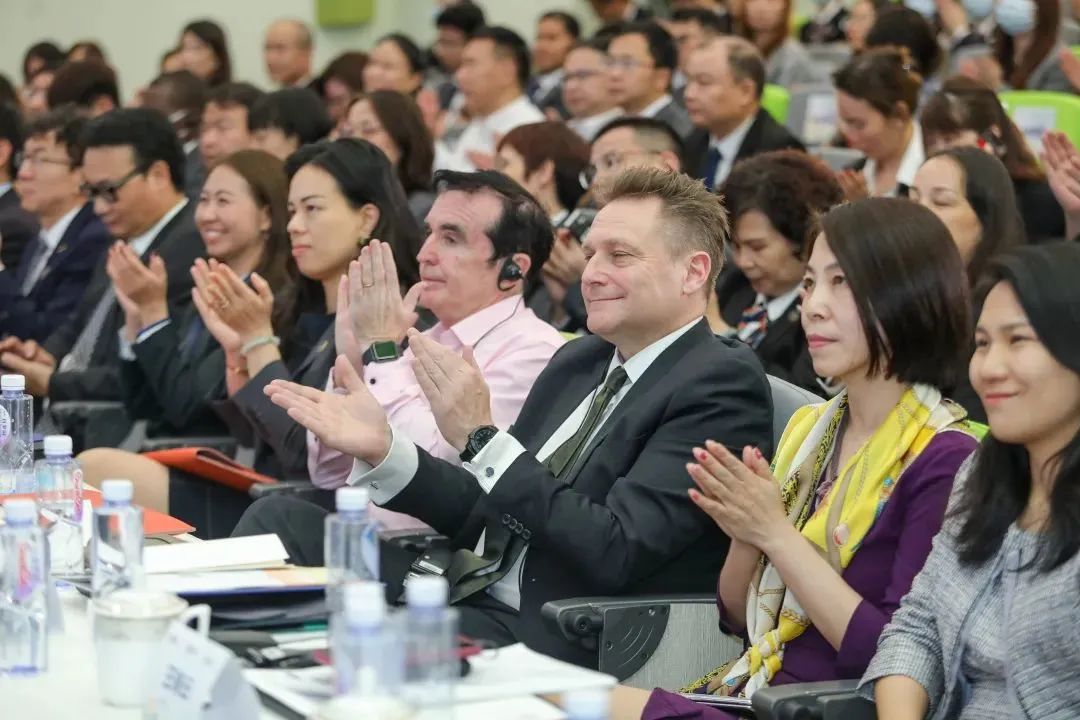


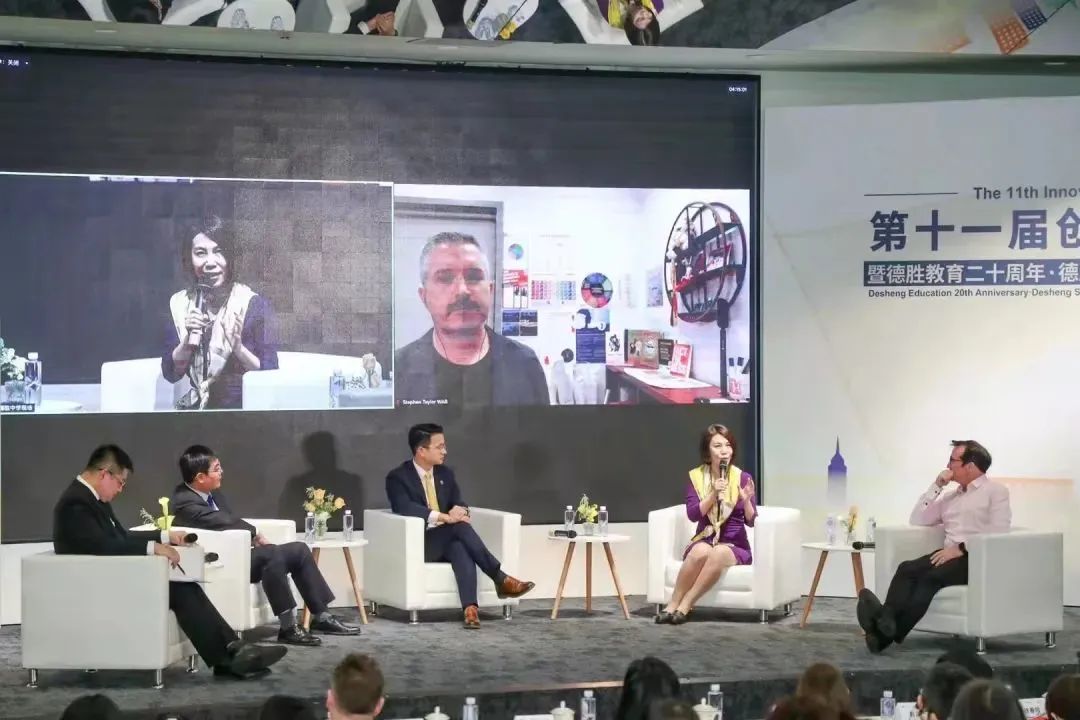
This is a far-reaching event focusing on international education and academic exchanges, gathering valuable experience, scientific literacy, and wisdom from the world's top scholars. This forum focused on the theme “Innovation”. As the host, KingLead invited Three world’s top university professors from Harvard, Cambridge, and Oxford, National Education Supervisor, Former Department Chief, Policy and Regulations Department, Ministry of Education, Executive Chairman, China Society of Educational Development Strategy Committee, Vice President, Doctoral Supervisor - China Education Policy Research Institute, Chairman of the Board & CEO of Desheng Education Group, Well-known international school principals, leadership, and related educators from Beijing, Shanghai, Guangzhou, Shenzhen, Suzhou, Hangzhou, and other cities.
The guests discussed the cultivation of innovative talents, grounded in the present and the likely future, based on China’s condition, looking around the world.
In this forum, Julian Jeffrey, Executive Master of Wellington College International Tianjin, brought a lecture on the theme of "Cultivate Soft Skills for Talents in the 21st Century".
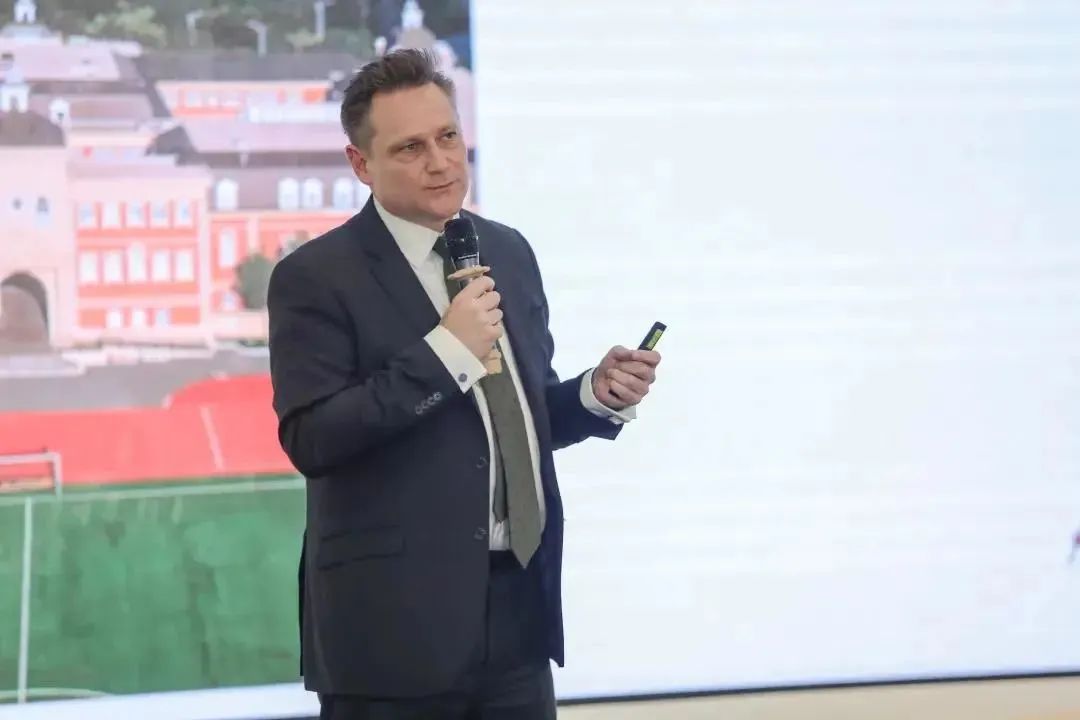
Julian Jeffrey
Executive Master of Wellington College International Tianjin
Topic: Cultivate Soft Skills for Talents in the 21st Century
01
Review of speech content
Good afternoon, ladies and gentlemen. Thank you very much for the invitation to speak, today. I'd like to start by congratulating Kinglead and Desheng Education Foundation for their 20-year anniversary, but also the DSI 10-year anniversary. I particularly want to congratulate Chairman Guo for the amazing students that I have had the opportunity to spend time with this morning, particularly my two guides who have done so much to make me feel at home.
In fact, they even tried to recruit me to the history department here. And I have to say I was successful over lunch. My interview with the chairman went very well.
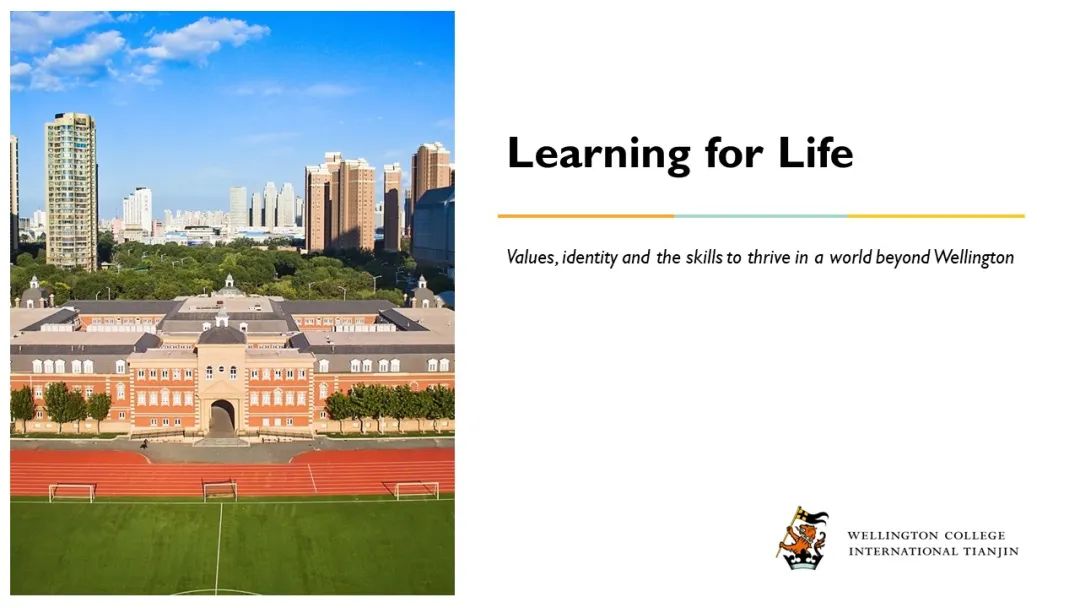
The title behind me (“Learning for Life”) is actually a little bit misleading, because what I want to talk about is a part of the curriculum that may be something that not all students and teachers always think about. We have heard a lot today about the taught curriculum. Innovation in technology, for example, seems to be a big area where innovation, technology, and STEAM education come together. We just heard from colleagues at WAB about how their whole teaching and learning programme is geared up towards innovation and exciting new developments in teaching and learning.
For me, though, I am going spend today talking about the untaught curriculum. Really what I am talking about is the profound journey through learning for students in our school. Forgive me, I am only going to use examples from our school, but I really mean it as a universal message.
So, let's start with thinking about the future of learning. And here is a passage from a UNESCO report on education, explaining how important values are in “preparing young people for life, work and citizenship”. I fundamentally believe this part to be true in terms of developing citizens of the future: “Although they cannot be separated from cognitive understanding, values and attitudes relate to the affective (or emotional) dimension of human behaviour”. And this is really what I'm talking about now. Because although it doesn't seem to link to innovation, believe me, innovators are brave, courageous, imaginative people, and we need to help our students to become these sorts of individuals. And that's what I mean by the untaught curriculum: creating a school environment and atmosphere in which students can really develop with these attributes.
The value and our attitudes we live by affect how we relate to other people. In talking about global citizenship, we have heard a lot today about a “world without borders”. I remember Principal Chen talking about border-free education, and it really resonated with me. Look at the way that people now are talking about learning and what the purpose of it is. After all, being at school and passing exams is only one tiny fragment of your lives. Yes, it defines you as a success or a failure in very narrow terms, while you are 17 or 18 years of age. But think about it when you're 28 or 38, it doesn't matter quite so much. It is how you lead your life as a citizen of the world which really is important. And schools should have a part to play in developing those sorts of people and those types of skills.
Why are values in education so important?
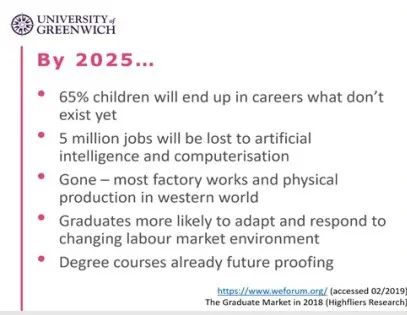
This slide (“65% of children will end up in careers which don’t exist yet”) frightened me. If you are sitting at the back of this room now and you have exams coming up in a couple of years or maybe even this year, and you are looking at this and thinking, “Well, I was planning to become an accountant or I was planning to become an airline pilot. And suddenly, there's a man on the stage telling me that 65% of us won't end up in careers that currently exist”. If you're frightened by that, don't be. It's probably true, but this was written by a futurologist, and you all know that futurology is not an exact science. It's just a thing that people say, so it may not even be true. Equally, don't be frightened by that prospect. Embrace it. Your education now will give you the opportunities to study a programme that gives you a way of learning and a way of leading your lives that becomes emotionally and culturally richer and more adaptable than the lives of your parents and your grandparent’s generation. It's really important to me that teachers in my school don't teach our students in the same way that I would have been taught. We try and teach the way that we hope and expect that you guys need to be taught.
So, let's start with the basics. In Wellington, we have five core values – responsibility, courage, respect, kindness, and integrity. Almost every good school has its values. Indeed, you have heard today about several schools and their values. They're inevitably pretty similar. Very few schools are going around today saying we're a value-free school, because parents don't want to enrol their children in a school that has no values!
Our core values are part of our taught and untaught curriculum. Lessons in our school would be very boring if all the time we spent talking about values. What I mean by the untaught curriculum is how we lead our lives, how we expect our pupils to behave, our teachers and staff to behave, and crucially our parents to behave. This is the bedrock of our learning in our school. And children from the age of 2 to 18 years of age go through this process and they are expected to understand these values and live by them. Outside that is what we hope to achieve by those values and that education through the untaught curriculum.

On this slide behind me you will see the outer circle has five words which make up the Wellington ‘Identity’. Now in English, it's easy to come up with five words, all of which begin with the letter I and all sound like they're really important, like ‘intellectual’, ‘inspired’, ‘inclusive’ etcetera. It doesn't work so well in translation because the letter I is no longer there, but the purpose is the same. I don't really like to talk about education in terms of product, but really, this is the product of an education through our system. This is what we expect our children to be like by the time they leave our school. Now usually that's at 18 years, but I understand in an international school context, students move when their parents move contracts and things like that. Even younger students can develop some of these characteristics or ‘identities’, as we call them ,in their journey through our school.
Perhaps you can now begin to see how the untaught curriculum starts to become a bigger part of our students’ lives, because these are the characteristics of a Wellingtonian who leaves us as a graduate, who leaves us to go to one of these great universities around the world. I'm always so jealous of them! They're always going to these amazing top ten universities, and they are imbued with these characteristics; they are inclusive; they are intellectual, and they certainly are independent. Unashamedly, our school fosters very high academic results but it also encourages children to be lifelong learners. It's a part of this broader picture of the sort of people that we want them to grow up to be.
Now comes a question that ties into parents and teachers really heavily. If you're a parent here, you'll know what I'm going to talk about, which is this idea of how on earth can I make my child and his or her learning more intrinsic? I'm spending hours looking over the shoulder of my child to make sure that he or she is working hard. But they still seem to let me down. They still seem to be playing video games for 10 minutes a day: what an outrage! They still seem to find so much time to relax, even when they should be learning. How can I, as a parent, make that learning intrinsic? This slide (“Arthur Wellesley, 1st Duke of Wellington”) is one I use as an example for our students and parents because this is from the school I used to work in, Wellington College in England. It is the sister school of Wellington College in Tianjin. And I was in that school for 18 years.
This is the citation from a medal that, every year on Speech Day, the two most hard working, the most laudable students in the school get a medal. They get a medal from Her Majesty the Queen. Now, the school is named in honour of Arthur Wellesley, the first Duke of Wellington, one of Britain's most famous military commanders. And I just picked out from what was written in 1859 on this medal, because every year it's still read out to the students at Wellington College in England. And I think it matters because it comes back to the values we were talking about. If you want it to be intrinsic, it must mean something to be individual. Perhaps, in the rather unscientific way that I'm talking about this topic, it can be described as learning with your heart. Intrinsic motivation is important, and therefore, it has to mean something. It's why I think values like the five we have are universal in whatever language you speak. People know what you mean by respect or responsibility or integrity or any of the others. This slide shows you what Wellington College was saying way back in the 1850s to describe the characteristics which would help a person lead a life that was positive and contributed to society – and I think they still have currency today.
Clearly the language used in England 170 years is different to that of today, but the themes remain. In a 21st Century context, there is still relevance to our young people. I think education in this form helps you to understand who you are as a young person. What is your place in this world? What is your purpose? If you think about things like this, and your school fosters in you that willingness to be courageous in decision making, interested and creative in your thinking, you are well-placed to meet the challenges that await. You heard this morning from the former Registrar of Oxford University about how important critical thinking was. Critical thinking is absolutely central, but it's frightening if you don't know how to do it. It's why only it's such a tiny number of people can go to Oxford and Cambridge and thrive there, because it is quite intimidating. As a young person, you need to be armed with the tools, the inherent tools and the self-confidence to be able to deal with that.
So, what do I think we can learn about it from the 21st century? Look, you're going need to be adaptable because 65% of the jobs that are out there don’t yet exist. If you think you're going to be an accountant for the rest of your life, you might be disappointed. So be adaptable, but be loyal to the things that matter to you. Your values don't change; your family doesn't change; your responsibilities don't change. But your adaptability as a thinker and a doer, and a member of society is important.
Being courageous is another good example from the Duke of Wellington. It takes courage to change. It's a really difficult step. But once you've taken it, things become much easier. You should also be responsible in life.
Take responsibility for your decisions. That's something that schools can teach you because teachers should model that. Parents should model that. You guys should model it to one another too.
I was talking to those two amazing young people who showed me around this morning. And one of them is in the student council. The other one I very much hope soon will be. They've taken responsibility for themselves, but also for other students and their learning and the way that they conduct themselves around this school. And they are great role models.
And then lastly, what key skills can you get from the untaught curriculum? How can you apply those skills that you are embedded every day in a way that is modelled by the people around you? How can you get those embedded as a culture in your school? I have tried to identify five areas where I think as you as young people – as well as the rest of us as educators and school leaders around China and the world - are looking to help young people become innovators of the future, giving them the tools to thrive.
I know that in an IB curriculum school such as this, you will get these opportunities. You get the opportunity to try these skills out in your school days – make sure you have the courage to try!
That's the conclusion on my presentation. Thank you very much indeed for your time. Thank you very much again to the Chairman for inviting me to speak today. Thank you all very much.
02
summary
Nowadays, education reform and innovation is not an expectation but reality. 11th Innovative Talent Forum & the 20th Anniversary of Desheng Education DSI 10th Annual Education Summit gathered scholars from high-ranking universities and educators from top international schools. The forum leads the education behavior and empowers the future. Let the change starts now.
Related Articles

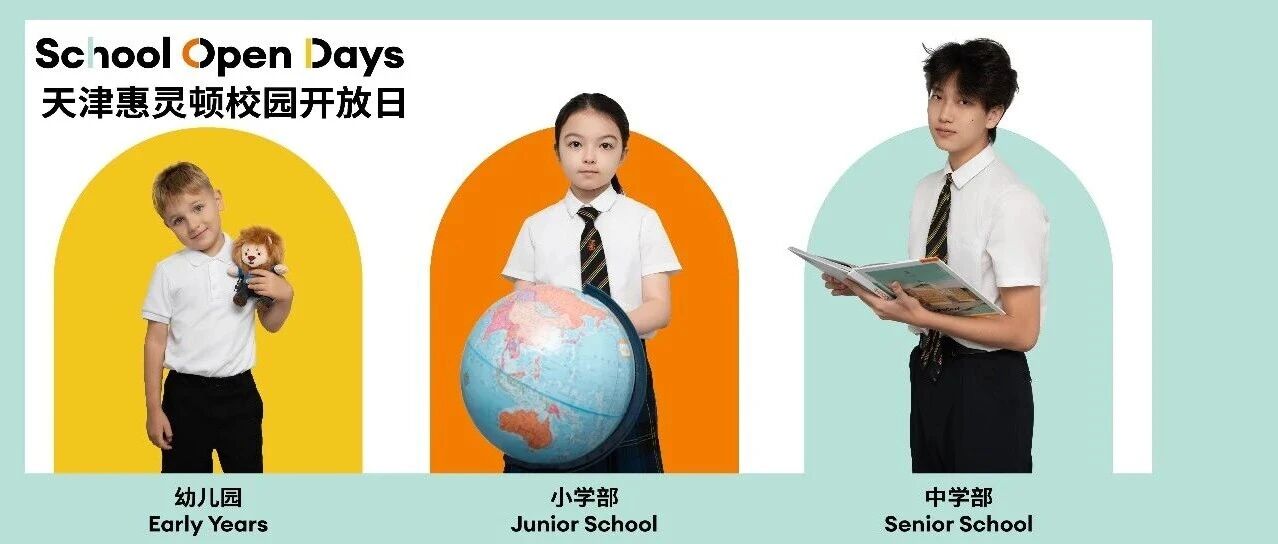






 Channel
Channel 
 Linkedin
Linkedin  Weibo
Weibo  Facebook
Facebook  Ins
Ins 

